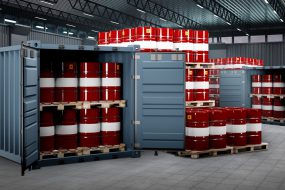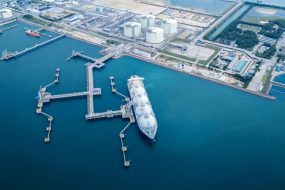

In the intricate world of energy, the oil and gas sector is a cornerstone of global economic stability and growth. However, the industry’s foundation relies heavily on the sophisticated logistics networks that underpin it. Understanding the role oflogistics in the oil and gas industryis critical for professionals navigating this complex landscape, especially amid the rapid technological advancements and evolving business models.
The significance of logistics in energy
Energy logistics is a specialised field that encompasses the planning, executing, and managing all processes involved in procuring, transporting, and storing oil and gas. Logistics’ importance in the oil and gas industry cannot be overstated, as it ensures the seamless flow of resources from extraction points to end-users across the globe. Navigating a labyrinth of pipelines, shipping routes, storage facilities, and distribution networks requires impeccable coordination and strategic planning.
Strategic coordination in oil and gas logistics
Strategic logistics coordination in the oil and gas sector involves a multifaceted approach. It requires synchronising supply chain management practices with advanced technological solutions to optimise efficiency and reduce costs. This includes:
- Utilisation of multimodal transportation: Leveraging various modes of transport—such as pipelines, tankers, rail, and trucks—to ensure the most efficient and cost-effectivedelivery of oil and gas products.
- Integration of technology: Implementing state-of-the-art technologies, including blockchain for transaction transparency and GPS for real-time tracking, to enhance operational visibility and supply chain integrity.
- Risk management: Developing comprehensive risk management strategies to mitigate potential disruptions, whether geopolitical, environmental, or market-driven.
Related article: 10 Latest Refinery Technologies Improving Safety and Efficiency
Innovative business models and logistics
As the oil and gas industry evolves, logistics companies must embrace innovative business models that prioritise sustainability and efficiency. Integrating logistics into the broader framework of a circular economy—where waste is minimised and resources are reused—is becoming increasingly relevant.
Circular economy and logistics
The circular economy is reshaping traditional logistics paradigms by encouraging the recycling and repurposing of materials. In the oil and gas sector, this means re-evaluating waste management practices and exploring opportunities for resource recovery. Logistics companies are now tasked with facilitating these processes, ensuring that materials are efficiently transported and reintegrated into production cycles.


Multimodal transportation in the oil and gas sector
Multimodal transportation is another critical logistics component in the oil and gas industry. By combining different modes of transportation, companies can optimise supply chain routes to reduce costs and improve delivery times. This approach not only enhances logistical flexibility but also minimises the environmental impact associated with the transportation of oil and gas products.
Challenges and opportunities in energy logistics
The logistics sector faces numerous challenges, yet these also present opportunities for innovation and growth.
Navigating Urbanisation and Technological Advancements
The rapid pace of urbanisation and technological advancement poses unique challenges for logistics in the oil and gas industry. However, these challenges also present opportunities for logistics companies to innovate and stay ahead of the curve.
- Urbanisation: As urban areas expand, logistics networks must adapt to the increased demand for energy resources. This requires strategic planning and investment in infrastructure to ensure the efficient distribution of oil and gas products.
- Technological Advancements: The advent of new technologies, such as the Internet of Things (IoT) and artificial intelligence (AI), is revolutionising logistics operations. These technologies enable logistics companies to optimise routes, predict maintenance needs, and enhance safety protocols.
Related article: Oil and Gas Logistics Companies Adapt to an LNG-powered Future
Addressing Environmental Concerns
Environmental concerns are increasingly at the forefront of logistics planning in the oil and gas industry. Companies are under pressure to minimise their carbon footprint and adopt sustainable practices. This is leading to innovations in logistics, such as developing eco-friendly transportation methods and implementing energy-efficient technologies.
The Future of Logistics in the Oil and Gas Industry
Looking ahead, the future of logistics in the oil and gas industry will be shaped by a commitment to innovation, efficiency, and sustainability. Professionals in this field must be prepared to embrace change and leverage new technologies to meet the industry’s evolving demands.
Embracing Blockchain Technology
Blockchain technology is poised to play a significant role in the future of logistics. Its ability to provide a secure and transparent record of transactions can enhance trust and collaboration among stakeholders in the oil and gas supply chain.
Enhancing Supply Chain Resilience
Building a resilient supply chain is essential in the face of increasing geopolitical tensions and market volatility. Logistics companies must develop robust contingency plans and diversify their logistics networks to mitigate potential disruptions.
Conclusion
In conclusion, logistics’ role in the oil and gas industry is pivotal and complex. As the industry evolves, logistics professionals must remain agile and innovative, harnessing the power of technology and sustainable practices to drive efficiency and adaptability. By doing so, they can ensure the continued success and growth of the oil and gas sector in an ever-changing global landscape.




